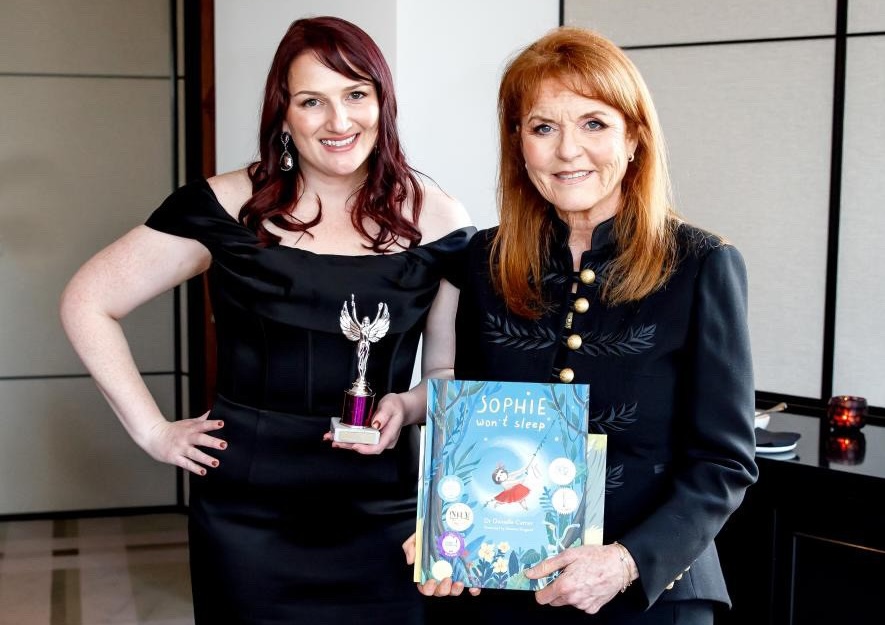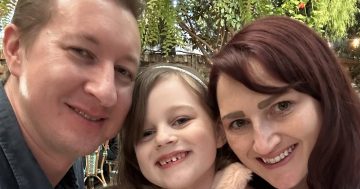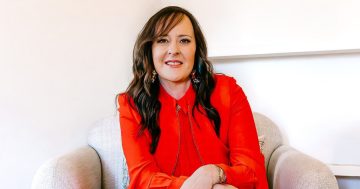
Dr Danielle Camer and The Duchess of York Sarah Ferguson at the 2025 Women Changing the World Awards, London. Photo: Liz Morris Photography.
Dr Danielle Camer launched her award-winning children’s book from a hospital bed — dressed in sloth pyjamas, hooked to an IV and determined not to let Crohn’s disease steal the spotlight.
“After many years of writing and refining my first children’s picture book Sophie Won’t Sleep, it wasn’t the book launch I’d imagined,” she said.
“A bowel perforation caused sepsis. Three hospital admissions bookended my debut book’s release date.
“It took this life-threatening event for me to gain access I have to the medication I need. Not everyone is that ‘lucky’.”
As May marks Crohn’s and Colitis Awareness Month, Dr Camer is adding her voice to calls for improved access to life-changing treatments for Inflammatory Bowel Disease (IBD) sufferers through the Pharmaceutical Benefits Scheme (PBS).
Dr Camer’s diagnosis occurred after an appendectomy at age 23, when the surgeon noticed abnormalities in her small intestine. Test results confirmed Crohn’s disease.
Crohn’s joins ulcerative colitis under the IBD umbrella — both chronic, often debilitating illnesses affecting close to 200,000 Australians.
These diseases manifest in a variety of ways from the classic gastrointestinal symptoms such as vomiting, diarrhea and abdominal pain to the lesser-known fatigue, fever, weight loss, anaemia, loss of appetite, joint pain, skin rashes and more.
“There have been times I’ve been bedridden from the pain. But a lot of people don’t realise it goes beyond a tummy ache,” Dr Camer said.
“One day, uveitis hit me out of nowhere — a result of a Crohn’s flare-up. I just woke up one morning and I couldn’t so much as open my eyes, because even with them closed my eyes were hypersensitive to the light coming through my eyelids. For someone who has never had eye issues, not so much as needed reading glasses before, it was terrifying.”
Dr Camer has had more hiccups along the way, but as a result of access to life-changing treatments through the PBS, has been in remission since 2022.
The author and her book went on to receive multiple national and international awards.
She said there was a lot of support for people living with IBD, but urged sufferers to speak up.
“It can be a bit of a taboo topic. When you’re talking about toilets, people can feel embarrassed. It’s important to be aware this is a medical condition and a largely invisible one — it’s OK to ask for help,” she said.
“You have to advocate for your own body to ensure you’re accessing the right treatment and getting care that meets your needs, because if you don’t, the flare-ups can be debilitating.
“On the flip side, know that once you get your disease under control, you can lead a normal life and achieve anything you want to.”


















